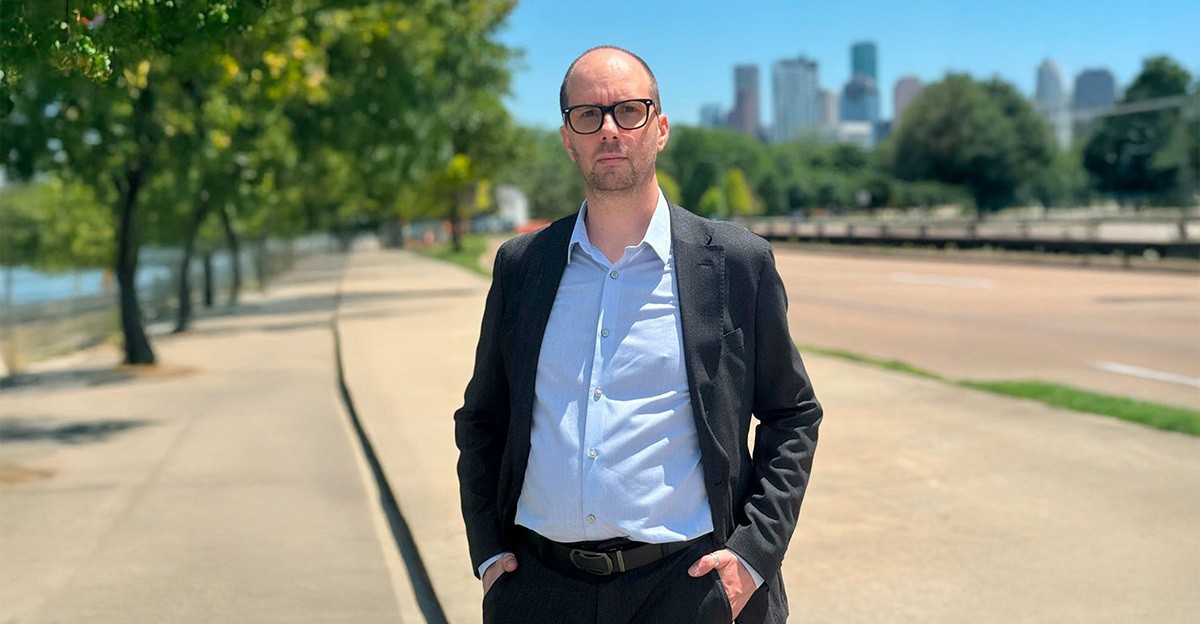
What if the biggest asset in your company isn't not a new system or strategy, but the experience already sitting inside your organization?
Aurélien Mangano, executive coach and former enterprise leader, has built a career helping organizations turn overlooked experience into measurable impact. Aurelien began his professional life as a software engineer, only to realize that his strength didn’t lie in writing code, but in understanding people. From his early days coding to leading major automation programs and advising C-suite leaders, Aurelien’s journey has sharpened his ability to see where companies often go wrong, and how to fix it.
“Leadership is not about delivering more,” Aurelien Mangano says. “It’s about delivering the right thing, at the right time, in a way that creates value.” Born in Grenoble, France, and now based in Houston, Texas, Aurelien Aurelien works with senior executives to bridge the gap between purpose and performance. His coaching blends strategic thinking with emotional intelligence to help leaders not only manage complexity but drive transformation from within.
Strategy Isn’t Strategy Unless It’s Understood
One of the most common pitfalls Aurelien sees in large organizations is the failure to translate strategy into actionable, shared understanding. “Companies often communicate strategy in very generic, pompous terms,” he explains. “And no one knows what it really means.” This isn’t just a communications issue. It’s a structural problem with real consequences. “A study from Harvard Business Review found that 95% of employees don’t fully understand their company’s strategy,” Aurelien says. “That means only 5% are rowing in the right direction. The rest? They're working at cross-purposes, which cancels out progress.” He recommends cascading strategy across all levels, validating understanding at each step. “It’s not about more emails or presentations. It’s about clarity. Making sure your message means the same thing to everyone.”
Leadership Over Control: The Shift that Unlocks Value
Aurelien speaks candidly about his own evolution from control to trust. Early in his leadership career, he leaned heavily into management. But it wasn’t until a pivotal moment, leading a hybrid Agile program, that he saw the cracks in an approach focused on meticulous planning and oversight. “We prioritized a feature that took a month to build and was never used,” he recalls. “The business value was zero. And worse, it delayed delivery of something important. That’s when I realized: we weren’t asking if what we were building was actually needed."
This experience shaped Aurelien’s belief that leadership means challenging assumptions, especially when engaging with stakeholders. “It’s not enough to deliver. You have to ask, ‘Will this create value?’ That conversation is uncomfortable but essential."
Aligning People with Purpose
At the heart of Aurelien’s coaching approach lies a Japanese concept called Kokorozashi, a personal mission that blends passion, talent, and purpose. He begins each client engagement by exploring this. “I ask them, what are you good at? What do you love? What does the world need, and what will you be valued for?” he explains. “Then we do the same for their company. The real magic happens when those align.”
This alignment also extends to team dynamics. Rather than assigning tasks evenly, Aurelien encourages leaders to distribute responsibilities based on strengths. “It’s not about giving everyone the same workload. It’s about matching people to what they do best and enjoy. That’s how you avoid burnout and build engagement.” And when it comes to hiring, he believes motivation trumps skill. “Ninety percent of skills can be learned. But you can’t teach someone to care."
Prioritizing What Matters: Tools That Work
To convert enterprise experience into measurable value, Aurelien equips his clients with both mindset and method. The growth mindset is foundational. “Be ready to learn, always,” he says. “Leadership is not static. You evolve as your context does.” He also recommends the Eisenhower Matrix, a simple but underused tool for prioritization. “People confuse urgency with importance. Especially when senior leaders say something is urgent, it’s treated as automatically important. But that’s not always true.” His advice? Focus on what’s truly important first. “Only once that’s done, deal with urgency. Not the other way around.”
Connect with Aurélien Mangano on LinkedIn or visit his website.






